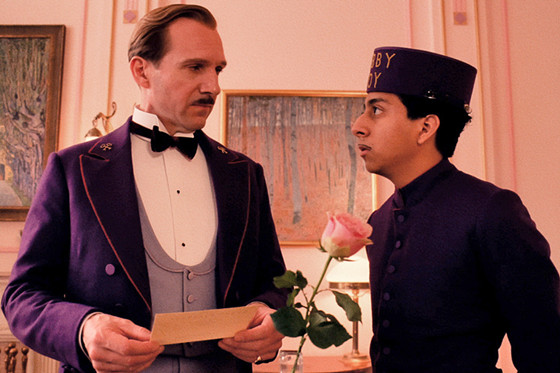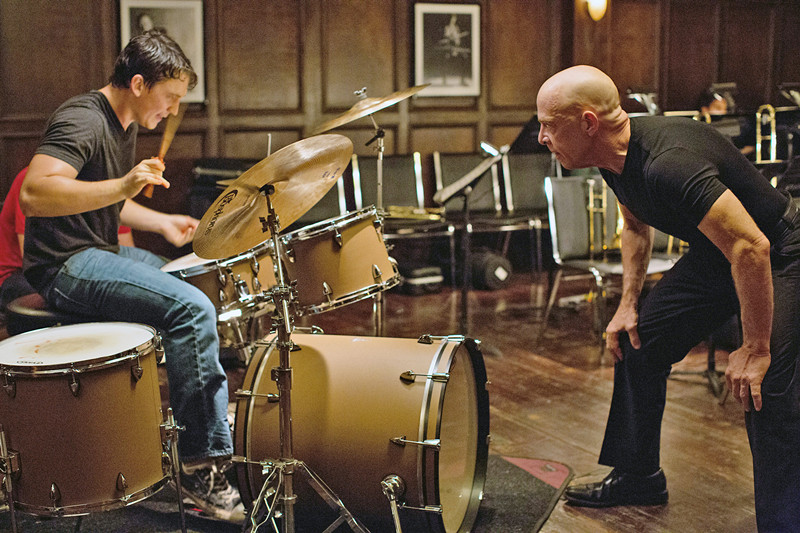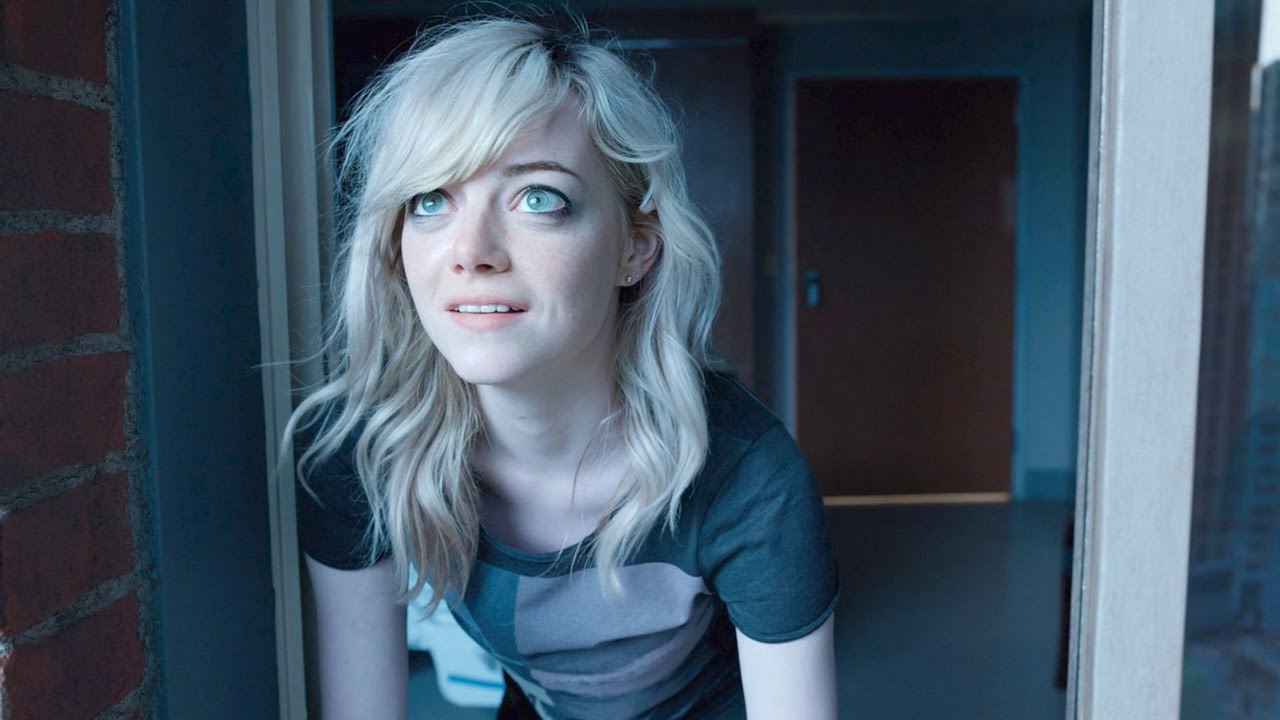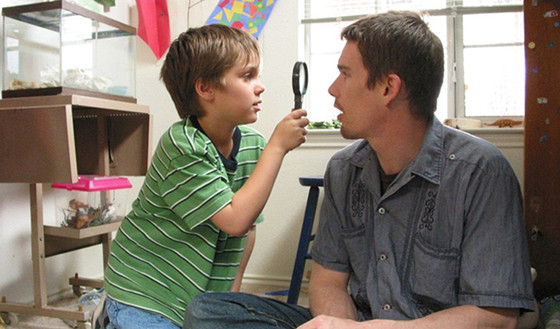4. The Grand Budapest Hotel

I hate putting this film in fourth, because I adore it so fondly. “The Grand Budapest Hotel” is a majestically exaggerated film that is so fantastically over the top; it is a living satirical drawing from which you won’t want to escape.
Wes Anderson has had his fair share of terrific films (“Rushmore” and this film), and a whole list of films that fans can rank in any order due to how much love each film receives (I personally find “Moonrise Kingdom” vastly underrated). There is no competition with this film, because you have to be soulless to not love at least something from it.
The comedic timing of Ralph Fiennes, Adrien Brody, Edward Norton, Saoirse Ronan, and so many other members of this superstar cast (including newcomer Tony Revolori) is perfect. The hijinks bring back the glorious mishaps that old screwball films used to display; despite the film not being a comedy, “Grand Hotel” seems to be a slight influence on this film, and not by name alone (the comings and goings of people in all sorts of institutions is what propels Anderson’s film).
Just writing about this film has gifted me with highlights I fondly remember that still make me laugh three years later, and I’m sure this will not change any time soon. “The Grand Budapest Hotel” isn’t just a highlight in Anderson’s already strong filmography – it’s also a (hopeful) game changer in the comedy genre. This is how it’s done, folks.
3. Whiplash

The older “Whiplash” gets, the better it seems. Within the context of 2014 and the 2015 Oscars, “Whiplash” seemed like a solid contender that had much to battle against. Three years later, it clearly feels like one of the better films on the list. In a few more years time, it may even top a list like this. There’s something about the film’s expert pacing and strong sense of danger that resonates with cinephiles of any sort.
Damien Chazelle’s film actually feels like a snare drum being pummeled: it either feels full of tension, or it is gracefully fluid. J.K. Simmons’ performance as jazz teacher Fletcher feels like an instant classic of sorts (if the film itself isn’t for many), because he is equal parts hilarious and frightening; he truly is the teacher you are entertained to hear about but would dread to have. Miles Teller’s performance as Fletcher’s uncompromising student is vastly underrated, and likely the best work Teller has done to date.
The chemistry between the two hotheads is electrifying to witness, and the music is flawlessly sewn into the battle through sharp editing, a keen focus on sound mixture, and the extreme close ups that make beautiful instruments turn into glaring eyes around chaos. “La La Land” was Chazelle’s tribute to musicals, but “Whiplash” is evidence that he purely loves everything about music, whether it be the orchestrated execution of a well-rehearsed band or the missed notes from exhaustion in between.
2. Birdman or (The Unexpected Virtue of Ignorance)

“Birdman” is impossible to discuss in short, and I have this problem every time I write about it. Alejandro G. Iñárittu’s cynical black comedy is so stuffed with connections and symbols that it only gets better with each viewing. The turning of a play into a film is the nightmare Riggan Thomson would have abhorred; like Thomson, the film resorts as a means of being heard.
It is deceptively still a play due to its seamless single shot, small range of locations (most of the film takes place on or around the center stage in some sort of vicinity), and its explosive cast (led by a sensational Michael Keaton, whose career has only flourished after this opus). Emmanuel Lubezki’s cinematography not only creates the illusion that this was filmed in one take, it also picks up on the small factors that only strengthen this film (the dust that floats through the beams of light, the reflections that naturally lay on top of all sorts of surfaces, and so on).
The film is so meta that its layers of commentary can only be cut by a chainsaw. Did the Academy get it wrong by electing this film as the best of the year? Absolutely not. It is only second on this list in the smallest of ways, and is easily the best film of 2014 in its own rights (as will be discussed in my number one pick).
1. Boyhood

As stated a number of times, the films between 4 and 1 on this list are easily the best film of 2014 and the Best Picture nominees list in so many ways. “The Grand Budapest Hotel” is imaginative, creative, and magnetic. “Whiplash” is cinematic drama at its finest. “Birdman” is a masterful depiction of conventionality combatting against integrity. “Boyhood” topping this list will likely annoy many readers here, but hear me out.
“Boyhood” is extremely mainstream and typical in a series of ways, yet I feel that is to enhance the ways it is magical. The pop culture populated soundtrack creates an auditory time capsule for each year the film was shot.
The lack of a stern plot is because the film is based on memories, not on a single story. There are many happenings in Mason’s life to make him the young adult he was by the end of the film. Whether it’s his time playing Halo 2 or the fears he endured from his abusive father figures (as well as the best efforts of his biological father who left for a good chunk of his life and is trying to be there for him now), we are seeing Mason become Mason.
This is textbook French New Wave, faux cinéma vérité, and the American Dream all shoved into a blender to capture a cinematic miracle. Now, it’s up to you if the film succeeds as an irreplaceable work of movie wonder or if it is a three hour overrated bore.
The reason why “Boyhood” wins is because it creates a new sensation with film watching that one almost never feels (when it works, of course). It is rare to adore the memories of others nearly as much as your own, yet “Boyhood” pulls it off.
Author Bio: Andreas Babiolakis has a Bachelor’s degree in Cinema Studies, and is currently undergoing his Master’s in Film Preservation. He is stationed in Toronto, where he devotes every year to saving money to celebrate his favourite holiday: TIFF. Catch him @andreasbabs.